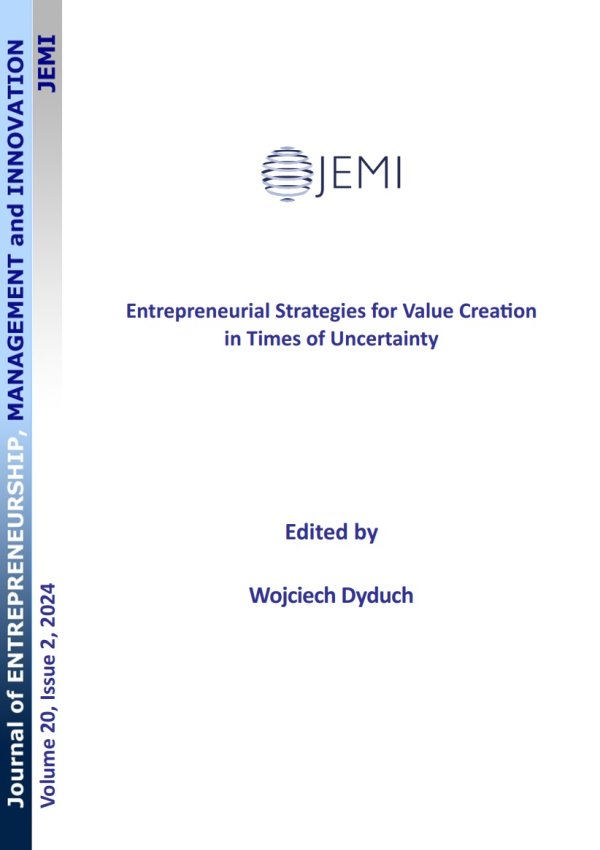Renata Gabryelczyk, Guest Editor, University of Warsaw, Faculty of Economic Sciences, Poland
Tomislav Hernaus, Guest Editor, University of Zagreb, Faculty of Economics and Business, Croatia
Business Process Management (BPM) has been evolving for over 25 years in Information Systems research, management science and management practice (vom Brocke & Rosemann, 2014). BPM encompasses methods, techniques and systems that traditionally lead to increased organizational efficiency and effectiveness (Swenson & von Rosing, 2015). BPM combines design, enactment, analysis, and management of operational business processes (van der Aalst, 2013). This traditional focus on BPM still exists and is significant, especially in organizations from less developed economies that sometimes follow practices and models conceived and tested in highly developed countries, but are also obliged to use their own experiences and understanding of the local business environment. In this area, research on BPM is still needed to better document, implement and improve operational business processes in the context of an organization, environment, culture and country.
For this Special Issue, we invite you to research and present the results of the current problems of an organization to help strengthen the existing body of BPM knowledge.
Besides this traditionally shaped approach to BPM, organizations increasingly treat BPM as a driver of organizational innovation and as an essential part of the digital transformation (vom Brocke & Schmiedel, 2015; vom Brocke & Mendling, 2018). New digital technologies such as social media, digital platforms, advanced data analytics, blockchains, robotics, etc, enable growth and innovation in a constantly changing environment. To take advantage of these opportunities in the digital world, organizations require new BPM competences and capabilities. Digital disruption creates quite a challenge for the BPM research community. How can BPM capabilities be developed in order to achieve adaptability, growth, flexibility and agility? How can BPM foster innovations within and across organizations? These are just some of the issues that are future research topics related to BPM.
In line with proposals by Michael Rosemann (2014) for future directions of BPM research, we suggest a balanced look at BPM in this Special Issue that includes both the exploitative and explorative perspectives of BPM research. Additionally, BPM theory and practice might be also approached from different levels of analysis, i.e., individual-, unit-, process-, organizational- or inter-organizational. Studying business processes from these different angles should enrich our understanding of current and expected BPM practices.
Why contribute to the Journal of ENTREPRENEURSHIP, MANAGEMENT and INNOVATION?
- Your research will be published in a widely cited journal, which is abstracted and indexed in many recognized databases http://www.jemi.edu.pl/abstracting-indexing
- JEMI is classified by NSD in the Norwegian Register for Scientific Journals, Series and Publishers, being a part of the Nordic List as the scientific level 1.
- Your research will be validated by a double-blind peer review process – you can receive valuable tips on how to improve your research.
- There are no charges for having a paper published in JEMI.
- You can share your research – JEMI is an open access journal which means that all content is freely available without charge to the user or their institution.
Important dates
- Initial Submission of full papers: 30 Nov 2018
- Reviews sent to authors (first round): 31 Jan 2019
- Revised papers due from authors: 31 Mar 2019
- Reviews sent to authors (second round): 15 Mai 2019
- Final revision due from authors: 30 Jun 2019
- Publication of Special Issue: at the end of 2019 or beginning 2020
Submission instructions
Papers should be submitted to JEMI, at This email address is being protected from spambots. You need JavaScript enabled to view it. and the Guest Editor at This email address is being protected from spambots. You need JavaScript enabled to view it. by email with „Special Issue BPM.” The JEMI instructions for authors apply: http://jemi.edu.pl/submission-and-policy
References
- Rosemann, M. (2014). Proposals for future BPM research directions. In Ch. Ouyang & J.-Y. Jung (Eds.), Proceedings of the 2nd Asia Pacific Business Process Management Conference. Lecture Notes in Business Information Processing (pp. 1-15). Cham: Springer.
- Schmiedel, T., & vom Brocke, J. (2015). Business process management: Potentials and challenges of driving innovation. In J. vom Brocke & T. Schmiedel (Eds.), BPM - Driving Innovation in a Digital World. Management for Professionals (pp. 3-15). Cham: Springer.
- Swenson, K. D., & von Rosing, M. (2015). Phase 4: What is business process management? In M., von Rosing, A.-W. Scheer & H. von Scheel (Eds.), The Complete Business Process Handbook. Body of Knowledge from Process Modeling to BPM (p. 87). 1st Edition. Morgan Kaufmann.
- Van der Aalst, W.M.P. (2013). Business process management: A comprehensive survey. ISRN Software Engineering, 2013, 1-37. Retrieved from http://downloads.hindawi.com/journals/isrn.software.engineering/2013/507984.pdf
- Vom Brocke, J. V., & Rosemann, M. (Eds.). (2015). Handbook on Business Process Management 2: Strategic Alignment, Governance, People and Culture. Berlin, Heidelberg: Springer.






